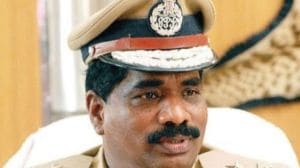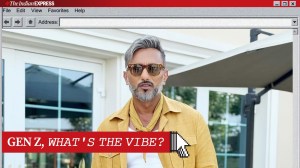Who versus CAG?
Does Mr Shourie really not understand the financial restructuring of DVB? I spent the better part of the morning of February 17, 2002 with h...

Does Mr Shourie really not understand the financial restructuring of DVB? I spent the better part of the morning of February 17, 2002 with him he was then Disinvestment Minister along with Ramesh Chandra then Finance Secretary, Delhi, Rahul Khullar then Planning Secretary and Mohan Harshey of SBI Caps. Pradip Baijal, then Secretary Disinvestment, was present. The whole structure including of course the treatment of DVB8217;s receivables was explained in detail and we left them our PowerPoint presentation. The figure of Rs 3,160 crore had already been worked out and was explained to him that day slide 16 of our presentation. The Chief Minister had sent us to seek Mr Shourie8217;s guidance: if there was anything wrong with the valuation, or anything else, he might have stopped us then-privatisation did not happen until July.
Now for the bidding process. It is not true that we negotiated with single bidders. There were two bids for each of the three discoms; the bids were not good enough so as prescribed by CVC8217;s guidelines we negotiated with the best bidder for each. The government accepted revised bids on terms and conditions less favourable than the original minimum level-not the first time this has happened. None of those whom Mr Shourie says we should have reinvited has ever complained. There was no realistic prospect of a better deal. It is nonsense to say we gave 8216;8216;concessions8217;8217; that 8216;8216;cost the exchequer thousands of crores8217;8217;: it is not as if anybody was willing to take over the discoms on better terms but that we insisted on worse!
The whole bidding package was based on projections starting April 2002, anyway, and further delay would have meant scrapping it and starting from scratch. The choice was between the offers we had negotiated and continuing with DVB-a far more costly option. In fact CAG in his first draft comments did suggest that we should have retendered, but dropped that objection when he understood the situation. CAG8217;s only surviving objection is that we needed the LG8217;s approval which the Government at the time did not consider necessary 8212; an important issue but a legal one that does not go to the merits of the decision.
There are more distortions. Out of the blue, Mr Shourie says that 8216;8216;the average consumer tariff would now have to increase by 20-30 per cent a year against the 10 per cent that had been assumed8217;8217;. Why? Has it? The negotiated terms meant the transitional assistance had to increase from Rs 2,600 crore to Rs 3450 crore in order to leave the tariff projections unchanged.
Again, Mr Shourie twists CAG8217;s observations on the stores that were transferred to the discoms to imply that 8216;8216;8230; they were made over to the two private companies free!8217;8217; though CAG so clearly says the agreement was that 8216;8216; 8230; Transco shall bill the discoms for these stores on actual cost8230;8217;8217; CAG has only commented on the implementation of that clause.
Mr Shourie has put me in the anomalous position of appearing to defend the CAG, who has actually been hard on us. Unbundling and privatising an SEB, especially when it is being done for almost the first time, is an immensely more complex task than flogging a hotel built on prime urban property. It is also more worth doing. We got off the taxpayer8217;s hands an enterprise that was losing about Rs 1,200 crore a year yet making the whole city unhappy.
The investors have made no windfall profits. While their performance to date is only a partial success, the AT038;C loss reduction of about 10 per cent achieved so far means over Rs 700 crore saved every year, implying a saving on tariff of about 15 per cent. Has the sale of the Juhu Hotel not that I8217;m against it brought any comparable benefit to the public?
The writer was the last chairman of the Delhi Vidyut Board. Email: jsagarvsnl.net
PART I
- 01
- 02
- 03
- 04
- 05































